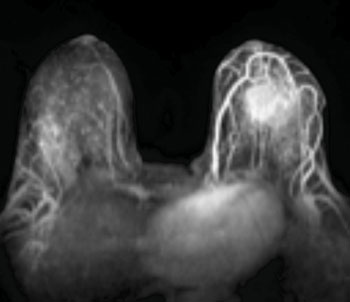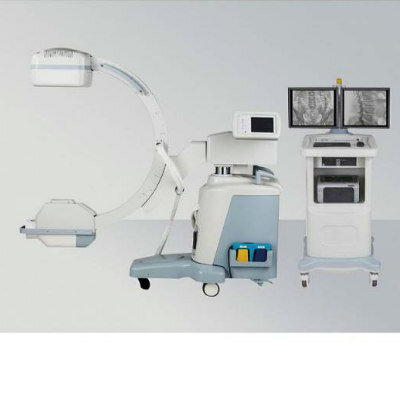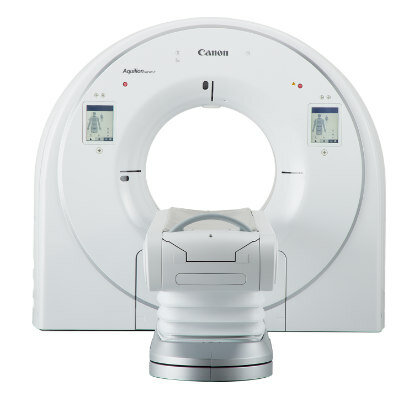Women with Average-Risk for Breast Cancer Could Benefit from MRI Screening
By MedImaging International staff writers
Posted on 09 Oct 2015
The results of a new study suggest that periodic screening of women with average risk of breast cancer, using Magnetic Resonance Imaging (MRI), improves the detection of small, high-grade breast cancers.Posted on 09 Oct 2015
The study was presented in by Christiane Kuhl, MD, University of Aachen (Aachen, Germany; www.rwth-aachen.de) at the 2015 American Society of Clinical Oncology (ASCO; San Francisco, USA) Breast Cancer Symposium.

Image: MRI Image Displaying Invasive Breast Cancer (Photo courtesy of Cancer Network).
In the study 2,120 women with average risk of breast cancer, were randomized, and underwent screening using breast MRI and mammography every 12, 24, or 36 months. The women in the trial had a mean age of 53.8 years, and there were 3,861 completed screening rounds. MRI screening resulted in Breast Imaging-Reporting and Data System (BI-RADS) I or II findings in 91% of the screens, BI-RADS III in 175 screens, and BI-RADs IV or V finding in 171 screens.
The study achieved an overall detection rate of 28.8 per 1,000 women, and found 61 cancers, 60 of which were detected only by MRI. The study found 20 (32.8%) DCIS cancers, 67.2% invasive cancers, 42.6% high grade, and 32.8% estrogen receptor (ER)/progesterone receptor (PR) negative cancers. No zero interval cancers were found.
The researchers concluded that MRI screening every three years could be enough to establish a zero interval cancer rate, and improve detection of some cancers.
Dr. Kuhl, said, “Mammography consistently fails to detect rapidly growing cancers, which will then be detected as ‘interval cancers.’” MRI has so far been used only in high-risk women; there is no evidence of its use in average-risk women.”
Related Links:
University of Aachen












.jpg)

